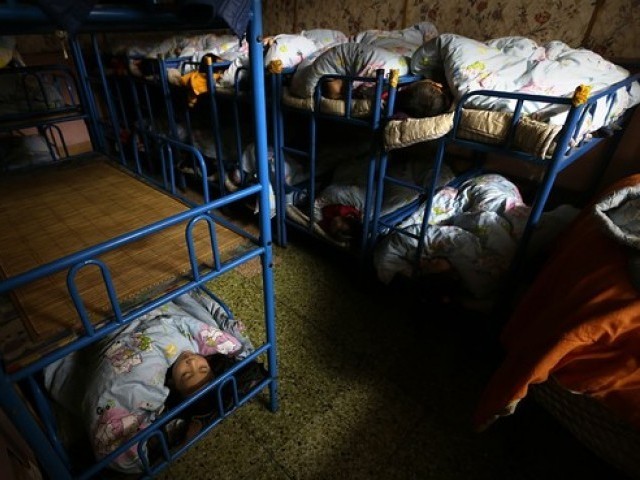With the recent conclusion of the Mid-Autumn Festival, the left-behind children of migrant workers pine for their parents in the city to come home, as they stay with their relatives in the countryside.
The festival, which fell on a Sunday this year, is usually a time for people to get together, with family reunions typically happening around this time of year.
But with more people deciding to work in the city, leaving their children behind, the number of left-behind children continue to increase in rural areas.
Xiao Xuan, a girl living in China's Shaanxi Province, has been spending her days drawing a picture of her parents coming home.
"My father can drive and ride a bike. Every time he comes home, he passes this road," Xiao explains her drawing.
Xiao, five years old, and her eight-year-old sister live with grandparents in Puhua Town, Lantian County, while their parents work in the city. Their father is a construction worker and their mother is a curtain sales woman in the provincial capital of Xi'an City.
"They only come back at the end of the year, they have very busy jobs," said Xiao's grandfather. He added that the sisters cannot live in Xi'an with their parents because school fees in Lantian are significantly higher.
According to Chen Juanni, an official with the county's education bureau, there are more than 10,000 left-behind children in Lantian.
"Local officials will visit some of these children during the upcoming holiday, and gift them pens, books and footballs. Or they have the choice to stay at 51 boarding schools where they can watch TV or read books. But that's not enough," said Chen.
In Hanhe Primary School, the school where Xiao studies, 58 out of 269 are left-behind, according to Ren Luqiang, school head.
"They are lonely, especially during the holidays," Ren said. "Many are shy and some struggle with behavioral problems."






















